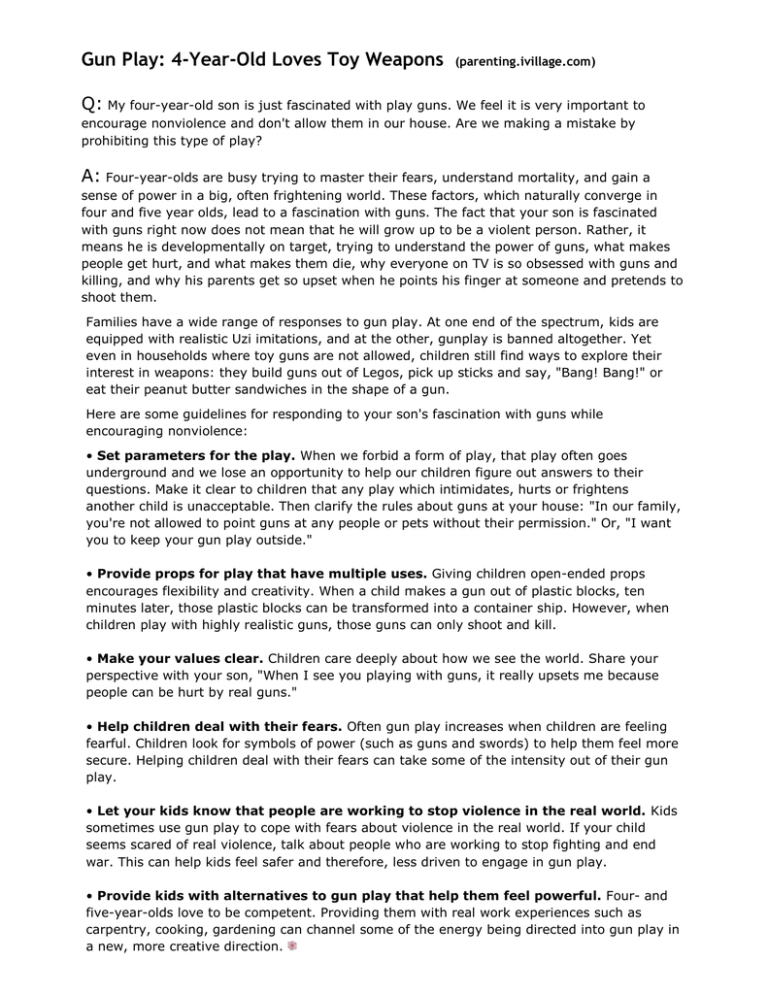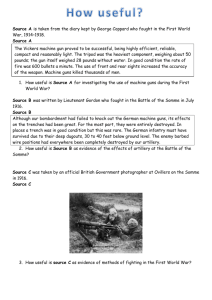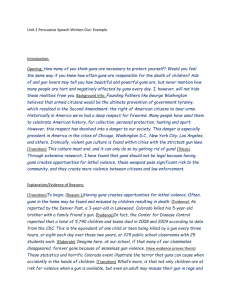Gun Play: 4-Year-Old Loves Toy Weapons Q:
advertisement

Gun Play: 4-Year-Old Loves Toy Weapons (parenting.ivillage.com) Q: My four-year-old son is just fascinated with play guns. We feel it is very important to encourage nonviolence and don't allow them in our house. Are we making a mistake by prohibiting this type of play? A: Four-year-olds are busy trying to master their fears, understand mortality, and gain a sense of power in a big, often frightening world. These factors, which naturally converge in four and five year olds, lead to a fascination with guns. The fact that your son is fascinated with guns right now does not mean that he will grow up to be a violent person. Rather, it means he is developmentally on target, trying to understand the power of guns, what makes people get hurt, and what makes them die, why everyone on TV is so obsessed with guns and killing, and why his parents get so upset when he points his finger at someone and pretends to shoot them. Families have a wide range of responses to gun play. At one end of the spectrum, kids are equipped with realistic Uzi imitations, and at the other, gunplay is banned altogether. Yet even in households where toy guns are not allowed, children still find ways to explore their interest in weapons: they build guns out of Legos, pick up sticks and say, "Bang! Bang!" or eat their peanut butter sandwiches in the shape of a gun. Here are some guidelines for responding to your son's fascination with guns while encouraging nonviolence: • Set parameters for the play. When we forbid a form of play, that play often goes underground and we lose an opportunity to help our children figure out answers to their questions. Make it clear to children that any play which intimidates, hurts or frightens another child is unacceptable. Then clarify the rules about guns at your house: "In our family, you're not allowed to point guns at any people or pets without their permission." Or, "I want you to keep your gun play outside." • Provide props for play that have multiple uses. Giving children open-ended props encourages flexibility and creativity. When a child makes a gun out of plastic blocks, ten minutes later, those plastic blocks can be transformed into a container ship. However, when children play with highly realistic guns, those guns can only shoot and kill. • Make your values clear. Children care deeply about how we see the world. Share your perspective with your son, "When I see you playing with guns, it really upsets me because people can be hurt by real guns." • Help children deal with their fears. Often gun play increases when children are feeling fearful. Children look for symbols of power (such as guns and swords) to help them feel more secure. Helping children deal with their fears can take some of the intensity out of their gun play. • Let your kids know that people are working to stop violence in the real world. Kids sometimes use gun play to cope with fears about violence in the real world. If your child seems scared of real violence, talk about people who are working to stop fighting and end war. This can help kids feel safer and therefore, less driven to engage in gun play. • Provide kids with alternatives to gun play that help them feel powerful. Four- and five-year-olds love to be competent. Providing them with real work experiences such as carpentry, cooking, gardening can channel some of the energy being directed into gun play in a new, more creative direction.

